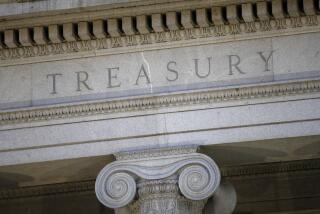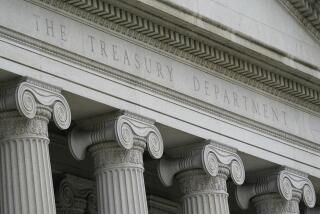U.S. Cracks Down on Cuba Trade Embargo
MIAMI — In the Bush administration’s latest move to toughen sanctions against President Fidel Castro’s government, federal officials said Tuesday that they were going after people who violate the decades-old trade embargo against Cuba.
U.S. Atty. R. Alexander Acosta announced that a federal task force -- including members of his office, the FBI, Coast Guard, Immigration and Customs Enforcement and the Treasury Department -- would crack down on illegal travel to the communist island and other violations. He promised that prosecutions would be “much more than a mere slap on the wrist.”
Acosta acknowledged that the agencies already work together on embargo enforcement. He said it was “an appropriate time to make it clear to the community that we seek to enforce this law aggressively.”
That led Cuba policy watchers to speculate that the announcement was meant to appease hard-liners in the Cuban American community who support restrictions on Cuba.
“Maybe it’ll make a difference if they actually make this a higher priority than other issues,” said Philip Peters of the Lexington Institute, a public policy group in Arlington, Va. “What is clear is the impact is on people in Miami and families in Cuba and that this task force doesn’t have a prayer of really affecting the finances of the Cuban government in a decisive way.”
The task force will investigate all types of violations of the embargo, including travel, imports and exports, currency transfers and money laundering, Acosta said. The sanctions, which apply to U.S. citizens, permanent residents and U.S.-based organizations, have been in place since 1962 and are overseen by the Office of Foreign Assets Control.
Individuals convicted of violating the embargo’s provisions can be sentenced to up to 10 years in prison and fined up to $250,000. Corporations can be fined $1 million.
Officials can also assess civil fines of up to $55,000 per violation.
“The purpose of these sanctions is to isolate the Castro regime economically and deprive the Castro regime of the U.S. dollars it so desperately seeks,” Acosta said.
Peters, however, said that most violations of the embargo are “very small potatoes,” such as Cuban Americans visiting family or sending money and packages to relatives in violation of rules governing those items.
In spite of the increased restrictions and enforcement, Cuba’s economy grew by 8% last year, according to the CIA’s World Factbook. That represents about $3 billion in growth, helped by Cuba’s trade relationships with countries such as Venezuela and China, and its tourism industry and nickel production, which is benefiting from high nickel prices, Peters said.
The rules, Acosta said, are meant to speed up a transition to democracy in Cuba.
Silvia Wilhelm, executive director of the Cuban American Commission for Family Rights -- which favors the easing of the embargo, particularly limits on family visits -- said the regulations would not result in a speedy transition.
“It is very, very sad when our government sends a message to a community that we’re going to keep hurting your family by keeping these provisions in place that do nothing but separate Cuban families,” she said.
More to Read
Sign up for Essential California
The most important California stories and recommendations in your inbox every morning.
You may occasionally receive promotional content from the Los Angeles Times.









